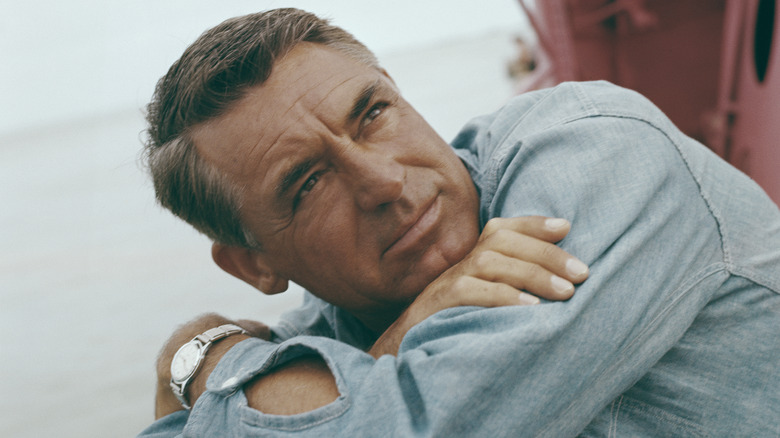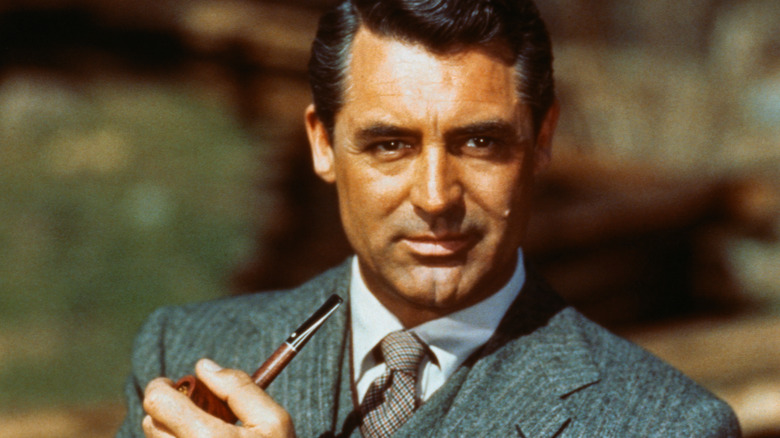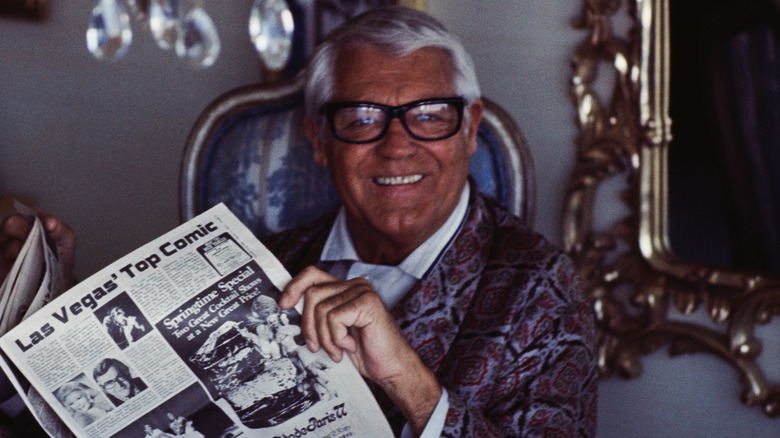Who Inherited Cary Grant's Money After He Died?
The man who was born Archibald Leach spent a lifetime's worth of energy and willpower to remake himself into the most charming and admired of film stars, Cary Grant. "He's a completely made-up character and I'm playing a part," he once said of his own public persona (via Vanity Fair). "It's a part I've been playing a long time ... A friend told me once, 'I always wanted to be Cary Grant.' And I said, 'So did I.'" It's been said that the movie star image he crafted was a way of compensating for a miserable upbringing at the hands of his impoverished and unhappy parents.
If Grant may have felt like an imposter in his own skin at times, he could at least claim a successful, wealthy, and happy life by his autumn years. He retired from Hollywood to concentrate on raising his daughter Jennifer, the apple of his eye, but his film work had made him an adored figure among friends and the public. When Grant passed away at 82 in 1986, Jennifer received half of his estate (per the Los Angeles Times). It was held in trust until her 30th birthday when she received half the principal. The full extent of her inheritance was given over to Jennifer at age 35.
The other half of Grant's estate was left to his fifth wife, Barbara Harris, who also inherited his home in Beverly Hills. A few lump sums of cash were left to various charities and organizations, and gifts of money or personal effects were left to business associates, Grant's third wife, and friends such as Frank Sinatra.
He was worth a lot (but he didn't want to say how much)
Graham McCann, one of Cary Grant's biographers, noted the irony of a man with a working-class background growing up to embody a certain type of privileged, debonair gentleman (per "Cary Grant: A Class Apart"). But success in Hollywood won Grant a fortune comparable to the roles he played. Another biographer, Gary Morecambe, called Grant "one of the shrewdest businessmen ever to operate in Hollywood" in his book "Cary Grant: In Name Only." By 1946, he averaged $150,000 per picture, over $2.3 million in 2023 when adjusted for inflation.
Grant invested his money well during his heyday, and after retiring from acting, he kept an active hand in finance and business. In 1968, he took a seat on the board of Rayette-Fabergé and remained there for 18 years. Besides serving on the board, Grant acted as an informal ambassador for the firm. Per Geoffrey Wansell's "Cary Grant: Dark Angel," some of Grant's friends got the impression that he considered these business affairs a worthier occupation than his acting career.
Work and investments may have made Grant a pretty penny in his lifetime, but he wasn't about to boast of his net worth posthumously. Per UPI, his will was deliberately cagey about the value of his estate. "Should my executors be required to make a statement as to the amount and character of my estate .. that said statement merely show my estate is in excess of $10,000," he wrote. According to Morecambe, the actual value was about $60 million, around $166 million in 2023 when adjusted for inflation.
Grant had many properties
Cary Grant left his primary residence in Beverly Hills to his fifth wife, Barbara Harris. But that was far from the only place he called home during his time in Hollywood — Cinema Scholars lists five properties in Santa Monica and Beverly Hills that the star lived in at one time or another. Many of these houses traded hands among other members of the Hollywood elite. For example, Grant's Santa Monica home was later owned by Howard Hughes and rented by Sharon Tate, and one of Grant's Beverly Hills residences was originally built by Buster Keaton.
In the 1950s, Grant kept another house for weekends in Palm Springs, a 4-acre estate he liked to call "Villa Paradiso" (per Realtor). While owned by the actor's friend Charlie Rich, Grant and his family were regular enough guests that the pool house was reportedly built just for them. It later passed into the hands of socialite Toni Kramer, who put it up for sale in 2017 at a value of $13 million. As for Grant's personal Beverly Hills estate — his final home — it eventually passed to his daughter Jennifer, who still called it home in 2022.


